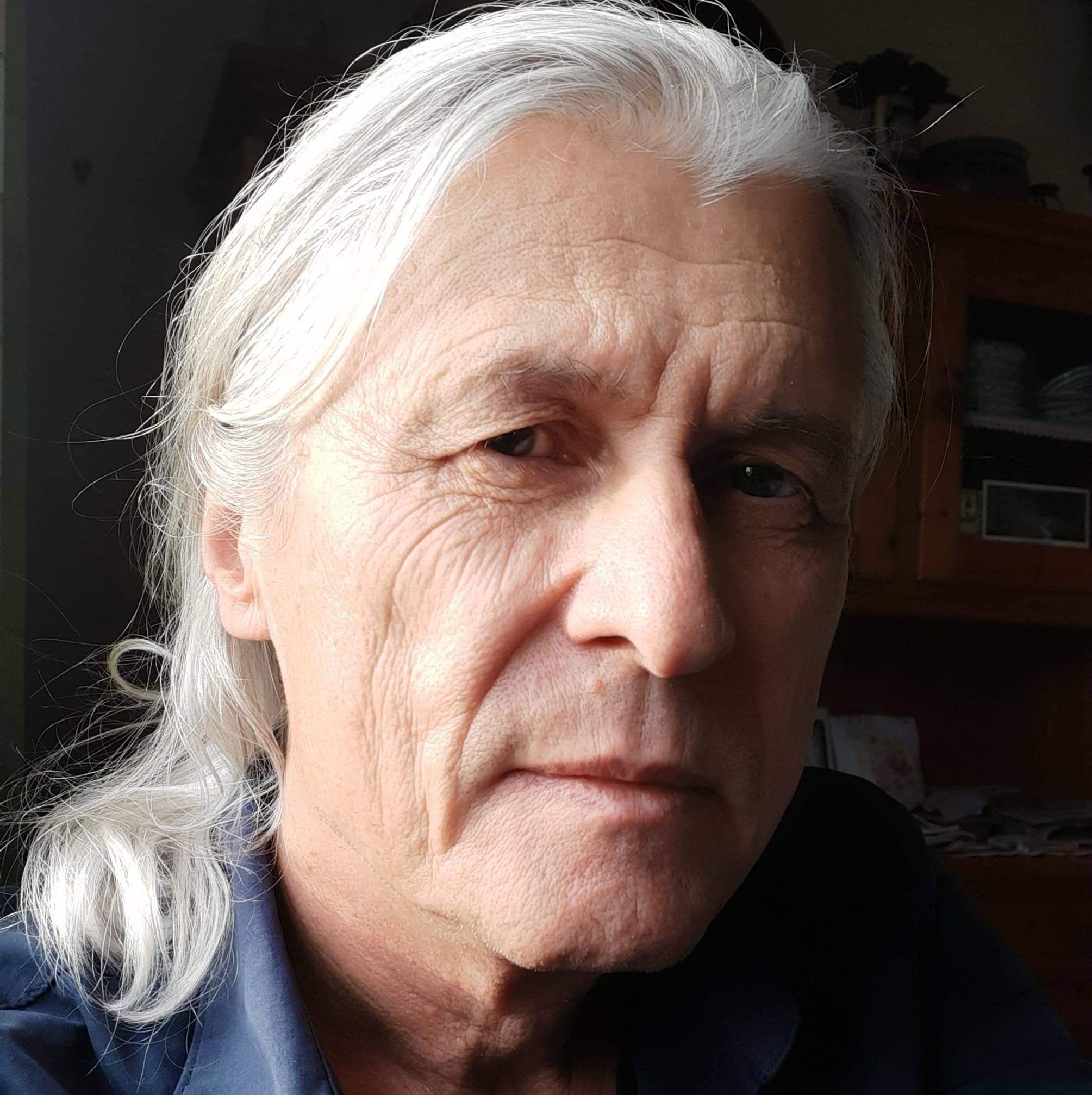Why living composers get blanked by the music establishment
Comment Of The DayReader’s Comment of the Day, responding to the early retirement of a successful composer, comes from Riccardo in Norway:
Being ignored – both in the sense of “not being known about” or simply not being cared about – is part and parcel of the lives of all but very, very, very few composers. I have worked with some of them. Actual geniuses (yes folks, geniuses) who were treated very badly by the musical environment. We also know of many composers who died not having heard large portions of their music. And then there are weirdoes like Sorabji, who couldn’t care less whether his music was played outside of his house (“I wouldn’t cross the road” – direct quotation). He could afford to be gauche and eccentric and write unfathomably long and complex works, having received a large inheritance.
Pianists had to get his permission to perform his works. I resonate with that: I’d rather my music not be played than it being played badly. I am not the best composer but I am my favourite one (as I suspect all composers will say, if they are honest). I love my music. That’s why I write it. Compared to my composer’s career, Mr. Fries has been positively stellar. Like comparing an ant to an elephant. I also have stopped writing, except for friends and on commission (the latter tends not to happen very often). I have seen, up close, the suffering of much greater composers than I and will not moan about the fact that my music is not being taken care of. I fully understand that, knowing one has something of value to contribute to the world and no-one giving a jot about it leads to suffering. I have also sussed out the debatable fact that it tends to take 50-60 years for “the world” to catch up with work of real value. As a rule the artist who produced it is already dead by then.
As for “I […] destroyed most of my CDs, threw out thousands of manuscript pages of my works”, I couldn’t help but be reminded of Geirr Tveitt, who lost about 80% of his manuscripts (of which no copies existed elsewhere) in a barn fire. It puts things in perspective.
I respect Mr. Fries’ decision to stop writing, even if the concept is alien to a creator (I suppose I am not one either, then). Frustration is not a good enough reason, though. I suspect the reasons he is not telling us about are the more interesting ones.
I wish him best of luck with his life.







If any public money for classical music is available there should be an allocation to fund a listening panel to consider objectively and provide a database of all current composers and their works so at least their work can be preserved and available to anyone who is interested.
Getting the/a government involved in vetting and promoting new music will surely result in just another venue for cronyism.
A committee to “objectively” consider the worth of music? That I would like to see. Just look at the panels that judge piano, violin and conducting competitions. Insider corruption at its best!
The Soviet Union had that system, and see what happened.
A listening panel? God help us if you mean “critics”
“Pianists had to get his permission to perform his works. I resonate with that: I’d rather my music not be played than it being played badly.”
The world is full of amateurish productions of Romeo and Juliet, and the play is immortal.
Classical music lives in an ivory tower separated from the rest of the world.
Is the rest of the world so welcoming that the tower has to be opened and its contents be replaced by the world’s commodities?
An ‘ivory tower’ populated by tens and tens of millions of Asians. One very crowded ‘tower’.
The music of Albin Fries belongs to the contemporary movement that wants to return to a premodernist aesthetics, to rediscover the sources of real musicality which were lost with postwar modernism with, in the German lands, especially the preference for Klangkunst which has done away with musical qualities altogether and replaced them with the interest in pure sound patters (which is in itself an entirely legitimate form of art).
Fries goes back to the late-romantic style of Strauss, early Schreker, Zemlinsky, Korngold. But he lands upon the sickly-sweet component of that musical language, which was the irritant that triggered most of the postwar condemnation. There were many very different styles begin 20th century, also in Germany/Austria, why didn’t he choose one with more substance?
In painting, there is today a comparable movement to return to mimetics, to figuration, already developing decennia. And also there, one often finds a return to exactly the sickly-sweet kitsch that invoked the objection of artists who wanted some more substance. The 19C impressionists sought something better than the fashionable Bouguereau salon kitsch, but such ‘returning’ contemporary artists pick-up the Bouguereau style.
Bouguereau:
https://www.encore-editions.com/youth-by-william-bouguereau/
Contemporary kitsch:
https://www.louissmithart.com/competitions/bp-portrait-award/
A contemporary composer who ‘goes back’ to the aesthetics of early 20th century, with a sweet romanticism, but whose musical taste avoids any hint of kitsch:
http://www.youtube.com/watch?v=Rq4DZEd_S94
Sop, probably Fries has two problems: tonaly romantic music in German lands, and too much kitsch in his musical language.
Mr Boreslap, if Albin Fries has just two problems, then, when compared to your legion of issues (many elaborated at length over years and inflicted on others in the comments of this blog) he may consider himself truly blessed.
I don’t always agree with Bortslap, but I’m happy to admit when I do. As is so often the case with these composers, their music pales in comparison to the “real thing”. OK his music harkens back to Strauss and Korngold but it’s even more kitschy? Well, we can just listen to Strauss and Korngold. Will I step in the doo-doo of my own argument if someone says “Well why listen to The Rake’s Progress when you can listen to Mozart and Gluck operas?” I guess I would just say that Fries is no Stravinsky, and, I am large, I contain multitudes.
In spite of his often kitschy smell, Strauss has quite some substance, until and including Frau ohne Schatten and large portions of Intermezzo. It is not a matter of style but of musical expression.
Stravinsky’s neoclassicism is an entirely new style, because everything in the music works differently from the models. Ravel choose a particular model for every piece he wrote, but everything sounds as Ravel.
Mahler took almost all of his ideas from other music and turned it into Mahler.
These things have nothing to do with style, and everything with idea and personality.
The little picture is aptly chosen. And that zoo should be hailed as progressive, to have such an educational program and giving names.
As usual, interesting and informed comments. The people will always vote with their feet. Poor Beethoven knew that when he discovered Rossini was more popular in Vienna then he in the early 19th century!!! To the modern contemporary composers I’d say; “diddums”.
«Why? » Uh, maybe because he writes music one would have written 120 years ago (not making any judgement, merely stating a fact).
In Europe, in the period 1880 – 1930 the musical world saw composers like Mahler, Strauss, a tail of Brahms, Schreker, Schoenberg, Saint-Saëns, Fauré, Debussy, Ravel, Scriabin, Szymanowski, Stravinsky, Rachmaninoff (yes), Bartok, Elgar, Vaughan Williams, Prokofiev, Shostakovich, Hindemith, Poulenc, Messiaen, and probably a number of others I forget. And they wrote all very different music, although all were rooted in tradition. Compare that with the rest of the 20th century. So, when composers want to pick-up something better than the conventional and outdated modernism of today, they go back to the last best period. Nothing wrong with it.
Too much truth: how deeply it hurts.
It’s true that in these times, to be a live composer is beyond bleak. What with everything, I don’t know where to begin: cancel culture if you have enough personality to create controversy blanks you out; how music and all arts have become a commodity, an entertainment rather than something that nurtures the soul blanks you out if you actually want to see the value of music or any art for what it is rather than a stimulant; how the academic settings have put people so full of ideas of how things should be that it’s more important to follow set rules than to even know what they lead to (thus the fights between the tonal-atonals, the tonally-non-atonal, the atonals, the tonals, the atonally-tonals and the birds who won’t take sides) … but if you take sides, avoiding the result, somewhere you might get a job at a musical “educational” institution. Or just writing something that you can explain “academically” might work as well. Or even glorify your “ideals,” and make that out to be having the answer rather than simply stepping into the void. Also works with fashions rather than academics.
However, I still find it a blessing, and a blessing beyond words for anyone living in a space where they have time, and have been given time, to find the miracle that is music. And that should not depend on whether this is on the top hit list of what’s recognized, or whether it’s something someone does for themselves, and is satisfied with that. There’s nothing wrong with wanting to find how the mind relates to something that’s made out to be a superficiality, and yet contains the amazing abilities to resonate with, hold onto, and blossom emotions, concepts, ideas and perspective that give meaning to life when nothing else can. To not allow for that because one isn’t recognized enough, is like saying I’ll stop enjoying the sunset now.
I’m not saying that it becomes beyond convenience for people to be able to avoid what they find a nuisance, and actually have to deal with those who have a different way of relating to life. What I’m saying is that for me, music is the one thing that kept me alive. It was like water for a parched plant that would have otherwise died, and with music the life came back in, simply because I could allow the reflexes that have to do with what’s called music (notes, themes blossoming, the mind going into another space) and what otherwise might have lead to me feeling oppressed and wanting to explode, that was eased, and that I think comes from God. There’s also no separation there. You may think you’re all alone, no one will hear or feel it, or the simple process itself isn’t enough, but I don’t believe that. I don’t think such limitations exist. Music is music, to honor where it comes from, and that’s already beyond time and space.
I could get into it technically, how musical vibrations have energy particles called phonons that show that they show signs of quantum entanglement a phenomenon beyond time or space; and those waves, with the energy, particles resonate with emotions. Giving emotions a perspective they wouldn’t otherwise have. That they can reach out and change perhaps even what’s called destiny because the free emotions. And there’s no difference for anyone there because it’s between them and music regardless of whether it’s the best “known” piece of music or whether it seems no one else has heard it. I think the medium itself transcends those limitations.
I truly believe that to allow an emotion to blossom (and then actually find out what it is rather than something one isn’t supposed to have) that this changes the future (where the emotion could lead to is allowed), it can change a person’s destiny. And that’s where music starts (something as non violent as music then has the ability to allow for such blossoming) and that’s beyond whether it’s turned into a commodity.
Otherwise, you might just have that instead. A commodity to avoid actually feeling: something used to run away from yourself.
The Houston Symphony has not performed a work by Harry Birtwistle since Lawrence Foster conducted Triumph of Time in September of 1973. I attended for Tchaikovsky’s Second Piano Concerto played by Gary Graffman, though I would not now. The Birtwistle, what it was like, what it must really been like, was all that turned out memorable from that long ago. A great, but neglected masterpiece.
Here it is:
https://www.youtube.com/watch?v=-LngaVVeQkM
What does it ‘say’?
‘Life is terrible, there is no light, no hope, no spirit, and everything will be swallowed by Death and Destruction’.
It sounds how dementia feels, or insanity, or Hell. ‘No escape.’ No wonder Birtwistle was celebrated for his upholding of a sound mirror, the new music establishment recognized itself puffickly clearly.
https://en.wikipedia.org/wiki/The_Triumph_of_Time_(Birtwistle)#/media/File:Pieter_Bruegel_the_Elder_-_The_Triumph_of_Time.jpg
https://en.wikipedia.org/wiki/The_Triumph_of_Time_(Birtwistle)
Mahler decpited the existential struggles of man so much better, and turned it into real music.
One has to deny a whole world of concrete positive signs to arrive at such bleak world view. To make a career out of it, is ridiculous, like an old testament prophet announcing the vanity of life and the announcement of the end of the world, and being generously paid for it, and posing in his desert with locusts in the hand before returning to his wealthy estate and generous meals and dancing girls.
Birtwistle is not a good example, I’d say.